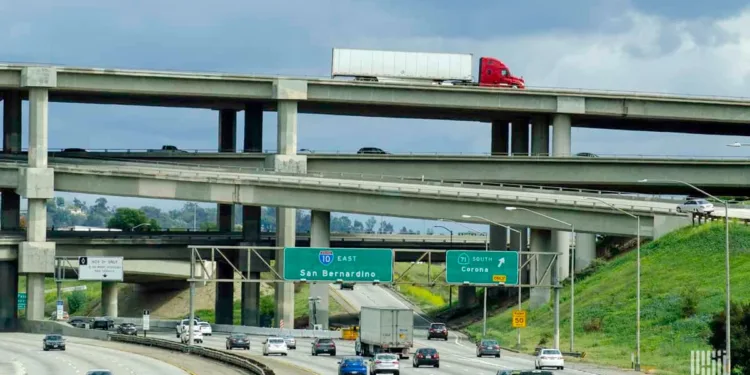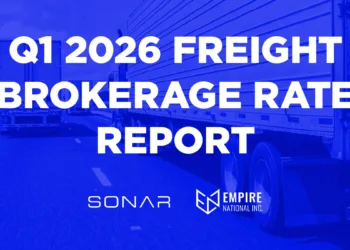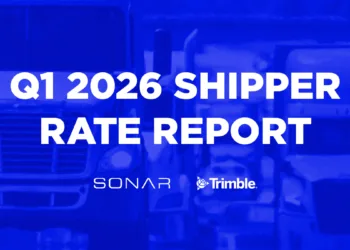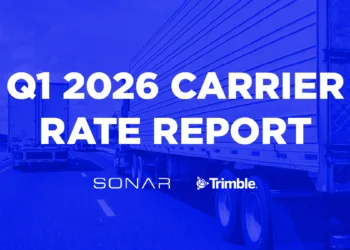A preliminary injunction stopping the California Air Resources Board (CARB) from enforcing the Clean Truck Partnership (CTP) against OEMs was handed down Friday by a federal judge in that state.
After first rejecting several of the OEMs’ arguments for the injunction in her decision, Judge Dena Coggins of the U.S. District Court for California’s Eastern District said it was a suit filed last week by CARB in a state court, seeking OEM compliance with the CTP, that pushed the court to approve blocking enforcement.
The CTP was a deal signed by CARB and a group of OEMs in 2023 that contained two key components. First, CARB would ease up on certain regulations on heavy-duty trucks, particularly the Omnibus Nitrogen Oxide (NOx) rule that would have set a California standard on NOx emissions stricter–and earlier–than the California requirement.
Second, by signing the deal, the OEMs agreed to not contest in court several California rules that were affecting them, including the NOx rule and the Advanced Clean Truck (ACT) rule, which set various goals and requirements aimed at moving to a zero emission vehicle fleet of heavy duty vehicles over the next roughly 20 years.
The CTP deal assumed the ACT would be in existence. But Congress earlier this year, acting on a petition from the Environmental Protection Agency (EPA), withdrew the waivers that allowed the ACT, NOx rule and other California transportation-related waivers from going into effect. California is challenging the legality of that action.
The ‘impossible situation’
The lawsuit by the OEMs to block enforcement of the CTP given the unsettled status of the ACT was filed in August. One of the OEM’s core arguments is that they are in an “impossible situation,” with the ACT backed by the CTP requiring the manufacturers to sell a growing percentage of ZEV vehicles into a California market that if the ACT waiver rescission is upheld will no longer have a mandate for any fleets to purchase those vehicles.
But legally, CARB took its most definitive step to oppose the OEM’s challenge last week in Superior Court for Alameda County in California alleging the OEMs opposition to the CTP constitutes a breach of contract of the “mutually acceptable, valid and enforceable” deal from July 2023.
That action proved key in the court’s decision to grant the injunction blocking California’s enforcement of the CTP. Judge Coggins dismissed several other rationales requested by the OEM plaintiffs in their quest for an injunction. But the existence of the California countersuit in a state court carried weight.
Quoting the state’s argument that the OEMs faced “no harm from continuing to comply” with the CTP, Judge Coggins said that may have been true prior to the filing of the lawsuit. But it was no longer the case.
The decision notes that CARB had said in August, in a so-called manufacturers advisory correspondence (MAC), that while the future of the ACT was making its way through the courts, OEMs could receive permission to sell vehicles in California as long as they were in compliance with the less stringent federal rules. If they were not in compliance with the ultimate California rules, they could face retroactive penalties after all litigation was squared away.
A new suit changes everything
But the filing of the lawsuit changed the battleground, the court argued, because it sought “a court order requiring OEM plaintiffs to certify to CARB’s standards, regardless of whether those standards were ever the subject of a preemption waiver.” The waiver referred to would be the waiver granting the ACT, because by allowing a state environmental rule that exceeds federal standards, it preempts federal jurisdiction.
“CARB’s filing of that lawsuit is clearly an attempt to enforce preempted standards at least in part because the model year 2036 zero-emission requirement is included in the Clean Truck Partnership yet CARB never obtained a preemption waiver for that requirement,” Judge Coggins wrote. “Thus, plaintiffs (the OEMs) have shown at a minimum that there are serious questions going to the merits of their claim that the CTP is preempted, and there is concrete, irreparable harm due to the attempted enforcement by CARB through its recently-filed lawsuit.”
Because of the suit and the court’s conclusion that it is an attempt by CARB to use it as an enforcement mechanism, “the harms identified by the OEM plaintiffs are no longer speculative.”
The plaintiffs in the case are Daimler Truck North America, International Motors, PACCAR Inc (NASDAQ: PCAR) and Volvo Group North America.
Given that Judge Coggins rejected most of the OEMs arguments in favor of an injunction, prevailing on just one of them (though one is all that was needed) a group of organizations led by the Sierra Club put a somewhat positive spin on the outcome.
In a prepared statement, the groups said they “(welcomed) the court rejection of truck maker claims while warning over temporary halt to (the) Clean Truck Partnership.”
The full request by the OEMs asked the court to block via an injunction numerous other California regulations. One of them is the Advanced Clean Fleets rule, which has been largely eviscerated and is now likely to have impact only on governmental vehicles. But that request was denied.
In the statement, Craig Segall, the former deputy executive officer and assistant chief counsel of CARB and who has been a leading voice for the coalition of groups, said the legal case is a “sideshow.”
“The real scandal here is that the truck makers will run to court rather than just compete on price for clean trucks – even as companies globally get ready to eat their lunch,” Segall said.
And despite the injunction, he described the ruling by Judge Doggins as a “win” that “just advertises their long-term business mistakes.”
An email to the Engine Manufacturers Association–which has mostly been publicly silent on the issue–and CARB had not been responded to by publication time.
More articles by John Kingston
DAT execs in two forums discuss how it seeks to reshape the freight sector
NMFTA’s freight classification overhaul: surprising shipper preparedness
Beautiful women, open doors and drivers: trucking cybersecurity risks proliferate
The post Judge blocks CARB’s Clean Truck Partnership enforcement appeared first on FreightWaves.




















